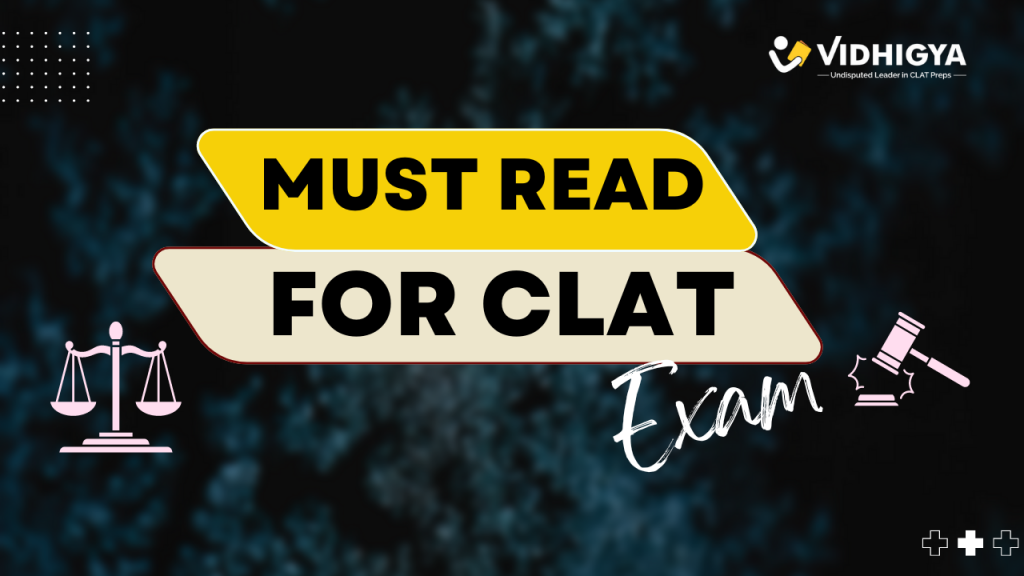Passage-based questions are a major part of the Common Law Admission Test (CLAT). These questions evaluate your reading comprehension, critical thinking, and analytical skills. Approaching them strategically can significantly improve your score. Here’s a guide to effectively tackle passage-based questions in CLAT 2025.
1. Understand the Structure of Passage-Based Questions
In CLAT, passage-based questions are designed to assess:
- Understanding of the Passage: Basic comprehension of what the passage says.
- Inference: Ability to interpret what is implied but not directly stated.
- Critical Analysis: Evaluating arguments and assumptions within the text.
- Application: Using the information to answer reasoning questions.
Each passage is followed by multiple questions, ranging from straightforward to in-depth analysis. Familiarizing yourself with this format will give you a solid foundation for tackling it.
2. Use Active Reading Techniques
Active reading helps you understand the passage more accurately and quickly. Try these tips:
- Highlight Key Points: Mark important details such as dates, names, arguments, and any contrasting points of view.
- Summarize as You Go: Summarize each paragraph briefly to help retain essential details for answering questions.
3. Identify Question Types
CLAT passage questions generally fall into several categories:
- Direct Questions: Require specific details directly from the passage.
- Inference Questions: Require reading between the lines.
- Tone and Style Questions: Ask you to determine the author’s attitude (e.g., critical, neutral).
- Application Questions: Require you to apply information in a new context.
Knowing the type of question will help you look for the right information in the passage, saving time and improving accuracy.
4. Eliminate Wrong Options
To increase accuracy, practice eliminating incorrect answers:
- Extreme Language: Options with words like “always,” “never,” or “completely” can likely be incorrect.
- Outside Information: If an option includes information not in the passage, can likely be incorrect
- Contradictions: Some options may contradict the passage directly, making them incorrect.
Eliminating obviously wrong answers first helps you narrow down the choices.
5. Use Context Clues for Difficult Words and Concepts
If you come across unfamiliar words, look for context clues in nearby sentences. Often, the meaning can be inferred from the surrounding text. For complex concepts, try linking them to prior knowledge, but avoid inserting outside information not mentioned in the passage.
6. Manage Your Time
Since passage-based questions can be time-consuming, maintaining a steady reading pace is crucial. Allocate your time as follows:
- 1-2 minutes for reading each passage: Read thoroughly but avoid overanalyzing.
- 1-2 minutes per question: Answer carefully but quickly.
If a question seems too challenging, skip it and return later if time permits.
7. Practice with Mock Tests and Sample Passages
Taking practice tests will improve both your reading speed and accuracy. After each mock test:
- Analyze Mistakes: Identify common errors, such as misinterpretation or rushing.
- Refine Your Strategy: Adjust your approach based on these insights to strengthen weak areas.
Mock tests also familiarize you with the length and complexity of CLAT passages, making the actual exam more manageable.
8. Stay Calm and Confident
Exam stress can impact your comprehension and decision-making. Here are some ways to stay calm:
- Practice Relaxation Techniques: Deep breathing or mindfulness can help you stay composed.
- Trust Your Preparation: Confidence in your preparation will help you tackle questions more effectively.
Sample Passage Analysis
Here’s a short example to demonstrate an effective approach:
Sample Passage Excerpt: “It is hard to imagine a worse candidate for the American presidency in 2024 than Donald J. Trump. His history of dishonesty, hypocrisy, and greed makes him wholly unfit for office. A second Trump term would erode the rule of law, diminish America’s global standing, and deepen racial and cultural divides. Even if he loses, Mr. Trump has shown he will undermine the election process, with allies spreading unfounded conspiracy theories to delegitimize the results.”
source: The Guardian
Sample Question: Which of the following statements would the author most likely agree with?
(a) Donald Trump is the most qualified candidate for the American presidency in 2024.
(b) A second term for Donald Trump could harm America’s reputation and unity.
(c) Donald Trump has a strong commitment to upholding the rule of law.
(d) The author believes Donald Trump’s allies have legitimate concerns about election integrity.
Answer: (b) A second term for Donald Trump could harm America’s reputation and unity.
Explanation: The author mentions that a second Trump term would “erode the rule of law, diminish America’s global standing, and deepen divides,” clearly indicating harm to America’s reputation and unity.
- Option (a) is incorrect, as the passage states Trump is “wholly unfit for office.”
- Option (c) is incorrect because the author believes Trump would erode the rule of law.
- Option (d) is incorrect since the passage refers to Trump’s allies as spreading “unfounded conspiracy theories,” implying that their concerns lack legitimacy.
Final Thoughts
Mastering passage-based questions in CLAT 2025 requires a mix of active reading, strategic answering, and consistent practice. By following these steps, you’ll improve your speed and accuracy. Approach each passage with confidence and refine your strategy through regular mock tests. With the right preparation, passage-based questions can become one of your strongest sections in the exam.



